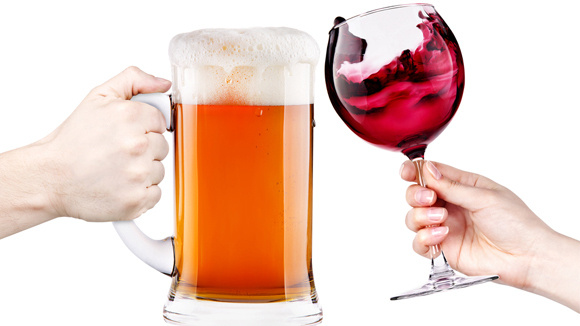Those who enjoy raising a glass after a hard day’s work may now be justified. A new study has found that consuming a moderate amount of beer or spirits each day could help reduce the risk of stroke and cardiovascular disease.
The study, conducted by researchers at Pennsylvania State University and presented at the latest meeting of the American Heart Association, examined more than 80,000 healthy Chinese adults over a period of six years, according to RT.
Throughout the study, participants answered questions about their drinking habits and gave blood for analysis four times, enabling researchers to measure their high-density lipoprotein (HDL) – otherwise known as ‘good cholesterol’ – as well as liver function and inflammatory markers.
Those who reported drinking moderate amounts of alcohol – one serving a day for women and two for men – saw the lowest drop in HDL levels. Moderate drinking also seemed to slow the natural decline of participants’ HDL levels, despite those levels generally decreasing with age.
Those who abstained or drank more heavily did not reap the same benefits.
The finding is significant because increased concentrations of HDL particles are associated with a decreasing chance of developing atherosclerosis – the build-up of plaque on the walls of the arteries – which is known to lead to stroke and cardiovascular disease.
“Almost without exception if you look at fatal and non fatal heart disease, people who drink in moderation have substantially lower rates than people who abstain,” study author Shue Huang said. “All the more reason to raise a glass – but probably not more than that.”
Although the trend applied to both beer and spirits, the effect was stronger for beer drinkers. The research did not gather enough data to measure the effect of wine consumption.
However, Shue and his team said that more research is needed to determine whether the association between alcohol and HDL levels applies to non-Chinese populations.
H.Z

